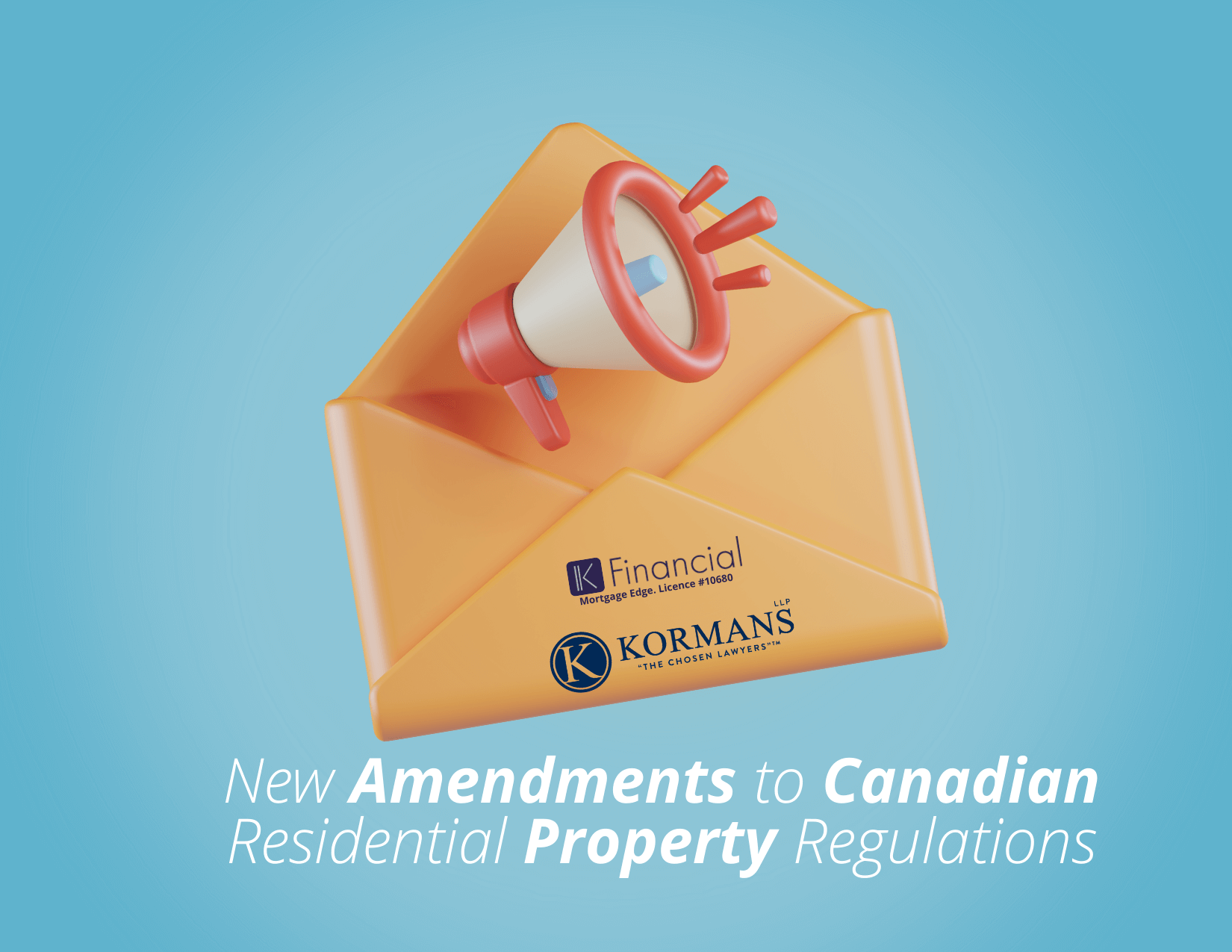At IK Financial, we understand that the recent amendments to the Prohibition on the Purchase of Residential Property by Non-Canadians Act have caused uncertainty and concern for many foreign buyers and developers. However, with the help of Kormans LLP Real Estate Lawyers, we have now a clear understanding of all opportunities for foreign homebuyers in Canada.
Without further ado, here are the Amendments that were introduced and are effective starting March 27, 2023:
Without further ado, here are the Amendments that were introduced and are effective starting March 27, 2023:
Allowing More Temporary Workers to Purchase
Prior to the Amendments, temporary workers were required to meet a list of requirements in order to be exempt from the ban. The requirements included tax filing history, work history in Canada and a purchase price limit. Now, temporary workers can purchase residential property in Canada as long as they fulfill the following two conditions:
This is a huge relief to temporary workers that wished to purchase residential property in Canada but were unable to do so due to the long list of requirements. With Canada being a major attraction for international talent to immigrate and make it their new home, it was thwarting plans for many people who intended to put down roots in Canada.
The Amendments do not change the NRST provisions: It is imperative to note that the Foreign Buyer Ban and the Non-Resident Speculation Tax are two separate issues. Even though a temporary worker may be eligible to purchase residential property in Canada, NRST will most likely still be applicable, which is 25% of the purchase price for Agreements entered on or after October 25, 2022. Please find more information about the NRST by clicking here.
- they have 183 days or more of validity remaining on their work permit or work authorization on the date of purchase; and
- they have not purchased more than one residential property.
This is a huge relief to temporary workers that wished to purchase residential property in Canada but were unable to do so due to the long list of requirements. With Canada being a major attraction for international talent to immigrate and make it their new home, it was thwarting plans for many people who intended to put down roots in Canada.
The Amendments do not change the NRST provisions: It is imperative to note that the Foreign Buyer Ban and the Non-Resident Speculation Tax are two separate issues. Even though a temporary worker may be eligible to purchase residential property in Canada, NRST will most likely still be applicable, which is 25% of the purchase price for Agreements entered on or after October 25, 2022. Please find more information about the NRST by clicking here.
Purchase of Vacant Land is No Longer Prohibited
Another provision which resulted in transactions being jeopardized is the one that prohibited foreign buyers from purchasing vacant land that is zoned for residential use or mixed use. Vacant land was defined by the Regulations as “…. land that does not contain any habitable dwelling, that is zoned for residential use or mixed use….”. In some situations, this provision resulted in encompassing transactions involving properties that had no possible relation to housing supply. For example, a purchase transaction of a grocery store situated upon a land zoned for mixed use could be prohibited considering that it contained no habitable dwelling!
The prohibition of purchasing vacant land did not only create situations as noted above, but also interfered with residential land development, which is contrary to the intention of the Act, i.e., generating more housing supply for the people.
The prohibition of purchasing vacant land did not only create situations as noted above, but also interfered with residential land development, which is contrary to the intention of the Act, i.e., generating more housing supply for the people.
Exception for Development Purposes
The Act was facing much criticism from developers, businesses and other stakeholders as it was hindering residential land development by disallowing foreign corporations and businesses to invest. The government has clarified their intention of encouraging development by repealing the prohibition to purchase vacant land as noted above, and also by adding an exception for development purposes.
The Amendments have also extended the already available exception to publicly traded corporations to include publicly traded entities formed under the laws of Canada or a province and which are controlled by a non-Canadian.
The Amendments have also extended the already available exception to publicly traded corporations to include publicly traded entities formed under the laws of Canada or a province and which are controlled by a non-Canadian.
Increasing Corporation Foreign Threshold to 10%
The Regulations provided a low threshold of 3% of equity value or voting rights, which if held by deemed non-Canadians, will render a privately held corporation/entity as a non-Canadian under the Act, and therefore, ineligible to purchase residential property in Canada. This threshold has now been increased to 10%, which will allow more corporations/entities to purchase residential property in Canada.
The Amendments have also extended the already available exception to publicly traded corporations to include publicly traded entities formed under the laws of Canada or a province and which are controlled by a non-Canadian.
The Amendments have also extended the already available exception to publicly traded corporations to include publicly traded entities formed under the laws of Canada or a province and which are controlled by a non-Canadian.
These changes are a step in the right direction to generate more housing supply for Canadians, while also providing opportunities for foreign buyers and developers. As mortgage agents, we are committed to helping our clients navigate these amendments and find the best solutions for their home-buying and investment plans.
We express our gratitude to Kormans LLP Real Estate Lawyers for their insightful article on the amendments to Canadian regulations. Their expertise and guidance have been invaluable in helping us understand how these changes benefit foreign buyers and developers in the market. We value our partnership with Kormans LLP Real Estate Lawyers and look forward to continuing to offer exceptional service to our clients.
We express our gratitude to Kormans LLP Real Estate Lawyers for their insightful article on the amendments to Canadian regulations. Their expertise and guidance have been invaluable in helping us understand how these changes benefit foreign buyers and developers in the market. We value our partnership with Kormans LLP Real Estate Lawyers and look forward to continuing to offer exceptional service to our clients.
IK Financial Mortgage Team operates on behalf of Mortgage Edge. Lic#10680





